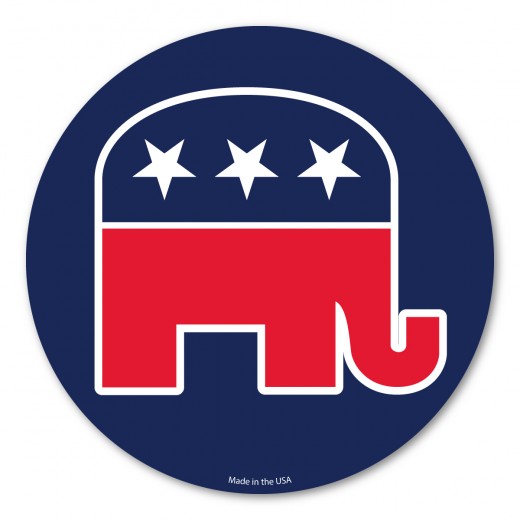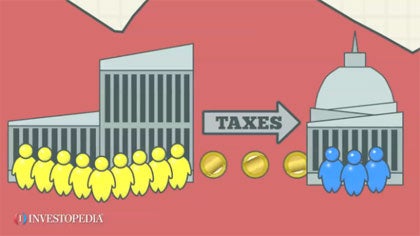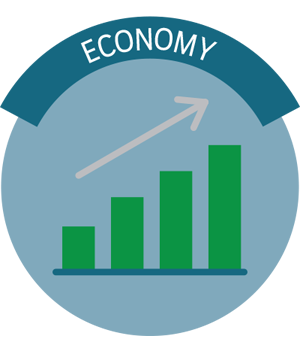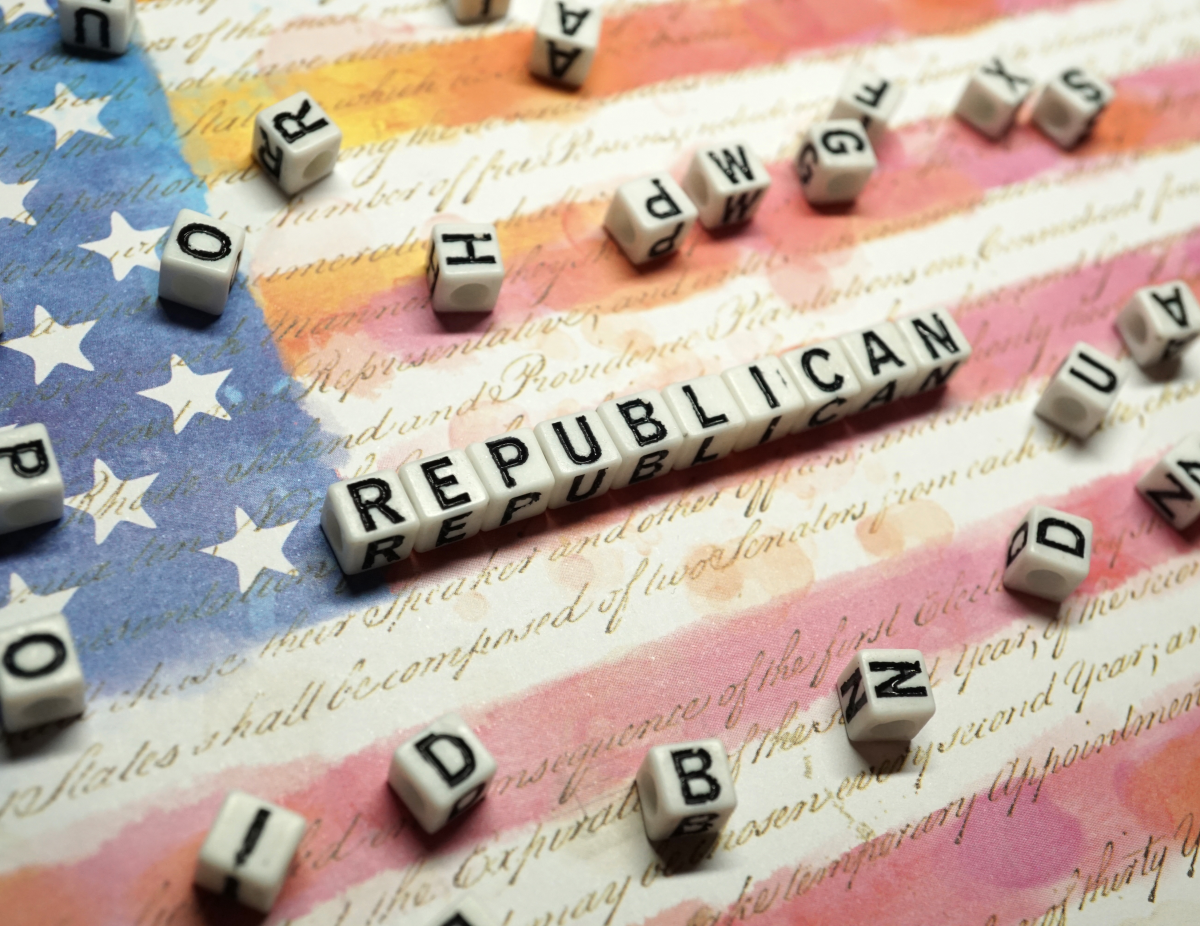What the Right Believes In
Introduction
In a nation that is more political than ever, partisan politics have become an epidemic. I think you can have two serial murderers to run and people will still vote for them as long as they are Republicans and Democrats. The main justification being that one candidate is the lesser evil. Now, it is extremely easy to call the other side of the political aisle idiotic, heartless, and ignorant; However, let us not do that and instead familiarize ourselves with their school of thought. We can absorb the practical and reject the impractical.


Fiscal Policy
Taxation
People on the right believe in across-the-board tax cuts. Now, I'm aware that many will point to the fact that tax cuts largely go to the rich, and not the poor. That is actually a correct observation. The reason for that is simple, we are cutting taxes for people who are paying the most taxes. Also, you can't cut taxes for people who are not paying anything in the first place. According to Tax Foundation, the top 1 percent paid a greater share of individual income taxes (37.3 percent) than the bottom 90 percent combined (30.5 percent). According to Keynesian economics, tax cuts will also stimulate the economy. I'm saying this because Keynesian economics is very popular with people who lean left.
Also, we do not believe that tax cuts are expensive. It is not expensive to let people keep their hard-earned money, it was their money in the first place. Furthermore, the word expensive relates to expenses and not reduced revenue. This also includes corporate taxes. According to SBE council, 99.7% of businesses are small businesses. By cutting corporate taxes, the small businesses will stand to benefit from the tax cuts. Small businesses are constantly struggling, their main source of finance is the profits re-invested back. By cutting taxes, we can increase their profit after taxes (PAT). Now, I'm aware that other sources of finances are available but they are not accessible by small businesses. This includes...
• Loans
Unfortunately, most small businesses' loans are not approved. This is largely due to the fact that most small businesses do not possess expensive long-term assets to serve as a collateral/charge. Banks will seek to have an asset as collateral so in case the loan is forfeited, they get to sell the asset to recoup the losses. This lowers risk for the banks. Other than that, small businesses do not have proven business track records so it is difficult for the banks to gauge the ability to repay the loan.
• Share issues
Well, limited liability companies can issue shares privately but it is not easy to convince private investors. Large companies who acquire public listings can easily market their shares to the public. By having a public listing, they improve the marketability of their shares because it is more accessible to investors, they can be bought online and in smaller quantities.
Government Spending
The right also believes in reduced government spending. This is due to the fact that we believe in fiscal conservatism. Fiscal conservatism encompasses the government taxing less and spending less. It is worth noting that I believe that the current military spending is sufficient. This is important to achieve minimal national debt which is a large problem with the United States being 22 trillion in debt. This might surprise certain individuals but Bill Clinton was a fiscal conservative.
By spending within our means, we can create budget surpluses instead of deficits. My problem with many Republican presidents is that they do not cut spending.
Social Issues
Affirmative Action
Republicans do not believe in affirmative action. We believe that the so-called minority groups are more than capable to thrive without the government helping them. Not only that, affirmative actions actually hurt minorities. The logic is simple, it is because they are not in their destined level. For example, a Hispanic student who wasn't supposed to be in Harvard got in. He wasn't qualified but through affirmative action, he entered a place where he will be at the bottom. What's the likely outcome? He'll likely drop out as he cannot cope with the higher level. According to Heritage, more than 50 percent of African-American law students (many of whom had been admitted pursuant to affirmative action policies) were in the bottom 10 percent of their class. And the dropout rate among African-American students was more than twice that of their white peers (19.3 percent vs. 8.2 percent)
Additionally, the concept of affirmative action directly interferes with meritocracy. This is done by switching the attention from skills and know-how to race and religion.
Abortion
Republicans believe in life, liberty, and the pursuit of happiness. Personally, I believe that abortion should be banned only after 3 months, but my opinion does not matter in this article. Generally, Republicans believe that abortion is murder, thus, it violates life. What about liberty? Well, if we fit into the current narrative, liberty to murder should clearly be disallowed. Furthermore, without life, you won't have liberty in the first place. It is also worth noting that many other contraceptives such as condoms, intrauterine devices (IUD), and many other alternatives are available. Please use it responsibly.
Also, it is not anti-woman to suggest that abortions are morally reprehensible. Do we believe in freedom? Yes, but not in the cases of murder. It is a free country, do whatever you want; However, when you are exercising your freedom by murdering, you'll be apprehended.
Gun Laws
Republicans believe in the right to bear arms. This is important to ensure guns are accessible to innocent people. Personally, I believe in backgrounds checks for both mental health and criminal record. Additionally, guns are utilized more by innocent people. The National Academies’ Institute of Medicine and National Research Council reported that, and I quote, "Almost all national survey estimates indicate that defensive gun uses by victims are at least as common as offensive uses by criminals, with estimates of annual uses ranging from about 500,000 to more than 3 million, in the context of about 300,000 violent crimes involving firearms in 2008." This statistic suggests that guns are used significantly more often to save lives than they are used to commit crimes.

The Economy
Deregulation
Republicans believe in deregulation of certain industries. This is important to stimulate competition by lowering the barrier of entry. With increased competition, consumers can enjoy a better flow of information by drawing comparisons. Industry leaders will also seek innovative ways to increase quality while slashing prices. It is also worth noting that increased competitors will increase the supply. According to the supply and demand model, when the demand is stationary but the supply increases, the price will drop.
Needless to say, this should be done in moderation because full-fledged deregulated industries will be akin to the jungle. During the 1970s in the United States, banks were stifled by many restrictions and regulations on things like interest rates(both lending and borrowing rate) and their branches were confined to a single state. Then, the deregulation happened and banks can now operate globally. Because of this, competition intensified, this benefited both the consumers and the banks.
Public Sector
Republicans believe that the private sector generally does a better job. For this, it hits close to home because I see this every day. I'm from Malaysia, a country in Southeast Asia. Over here, the private schools do better than public schools. Private hospitals also provide better facilities and services. In conclusion, generally, the private sector is better.
The reason is simple, in the public sector, people in charge are spending other people's money. Therefore, they are not careful with the money because it wasn't earned by them so no effort and planning was involved. For example, people working in the government sector often take trips to the capital city of Kuala Lumpur. I heard that they often purchase the most expensive air tickets because it's the government's money, they justified. What a waste of our taxpayer's money!
Capitalism
More specifically, laissez-faire capitalism in which the government limits intervention in businesses. We believe that when the government reduces intervention in businesses, they tend to do better.
Case in point is Hong Kong. Nobel prize-winning economist Milton Friedman credits Hong Kong as a laissez-faire state, Hong Kong has tremendously improved from poverty to prosperity in just about 50 years. In fact, their income per capita even surpassed Britain (who once ruled over them). According to Heritage, the standard income tax rate is 15 percent, and the top corporate tax rate is 16.5 percent in Hong Kong, these are very low tax rates, in my opinion. Hong Kong is also ranked 1st among 43 countries in the Asia–Pacific region. Hong Kong’s economic freedom score is 90.2, this makes it the freest economy in the index of 2019.
According to CEO world, other nations with free economies include, but are not limited to Singapore (world's most competitive economy), New Zealand, Switzerland, Australia, the United Kingdom, and Canada.








